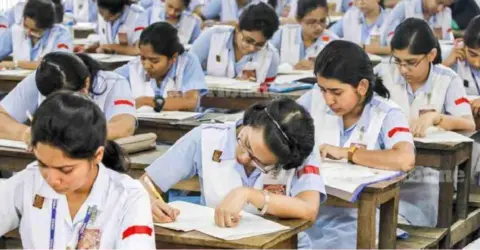
Nakibul Ahsan Nishad
Every time we think of a person with disabilities, a picture of helpless person appears in front of our eyes. Assuming that they are of no use! But wait, they are not burden today. They have the right to enjoy all the benefits of education and employment. In the belief of being self-reliant, they are also rushing to create world-class handicrafts. Many of them are making different types of baskets, bags, carpets. and artefacts using jute and indigenous raw materials likehogla, leaves, chan, kashia.
S&S Handicraft BD of Shibpurupazila in Narsingdi district is working to implement their dream. Mostafizur Rahman Shipto, a young entrepreneur, started his journey in 2020 with 100 differently able people. Shipto has long wish to work with people who are disable. After finishing his studies, he took a job in a multi-national company. But since everything was closed in Covid-19 pandemic, he chose to walk the path to materialize his dreams. He took the initiative when the situation in Corona was normal. Shipto finds people with disabilities from different organizations. He then trained them through an experienced instructor. Initially they were trained in handicrafts funded by Sightsavers and UKaid. Then all the world-class handicrafts are being made with their skilled hands and it is being sold through the Facebook based online shop called Dreams Thread. They are crossing the margin, earning profit, and in this way a new place of work has been created for them.
The organization is imparting free handicraft and cottage work training to the disabled and helpless people in Bangladesh with the aim of making them functional and self-reliant. So that no one can neglect physically disabled citizens.
Mostafizur Rahman, hailed from Itakhola of ShibpurUpazillain Narsingdi district, arranged training in making jute products and handicrafts to make the disabled self-reliant.
He said, ‘The only dream is for all the helpless physically disabled people of Bangladesh to be created as an asset in the society without being a burden for the society. Through this training they have been able to learn the work of jute and various handmade products. We appeal to the public and private handicraft companies in Bangladesh to help us move forward.’




